"Most of the work and research that I've read on anti-racism is built on one assumption: that it cannot end. My article aims to ask one question: WHY NOT? We are the vessel for the dreams our ancestors were unable to dream. And because of them, and the ground that has been prepared before us, it's time for us to dream bigger."
—Justin Michael Williams
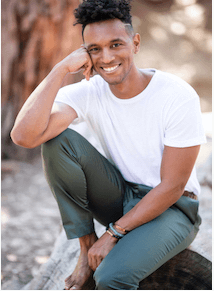
“Almost every piece of work or literature that I've read on racism is built on one assumption: that it cannot end. Or at best, that it will be a ‘lifelong fight.’ That ending racism will be something that ‘will probably never happen in our generation.’”
These compelling insights by Esalen faculty Justin Michael Williams lure readers into his thought-provoking essay Ending Racism: How to Change the World in One Generation. In it Justin writes that if we continue to say, "racism is something that can never end in our generation ... then who the hell ever gets to take responsibility for ending it? Enter: us.”
Justin, who wrote the article when he was an artist-in-residence at Esalen in July, dives deep with Esalen News on the genesis of the project and why it was important to offer this timely call to action.
Esalen News: Let’s begin with one of the unique things that arose from your time as an artist-in-residence at Esalen in summer.
Justin Michael Williams: I came to Esalen with one creative intention: to see what emerged if I unplugged from the incessant shitstorm of the media. Before I got to Esalen, my nervous system was shot—seeing black man after black man being murdered by the police. After about a week away from all the stimuli, I felt something start to emerge—hope. Being on the Esalen grounds plugged me back into one big truth: our ancestors have been persevering for generations, and we can too.
What was one main thing you, in your heart, wanted to communicate with the article you wrote about racism?
Most of the work and research that I've read on anti-racism is built on one assumption: that it cannot end. My article aims to ask one question: WHY NOT? We are the vessel for the dreams our ancestors were unable to dream. And because of them, and the ground that has been prepared before us, it's time for us to dream bigger. It's time to create a vision where we aren't just talking "about" racism, but ending it.
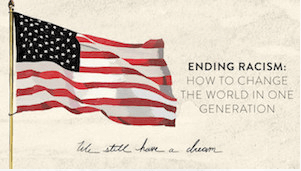
Your article is a dynamic call to action. What do you hope people take away from it?
I hope people understand that there's a big difference between fighting against something and fighting for something. When people sign the Pledge to End Racism at the end of the article, it's a signal that we have opened our minds to a new possibility.
So often, we fall into resignation about race and racism, but resignation is the opposite of progress. And so regardless of who started it, regardless of who points the finger of blame, if we want to end racism we all have to step up to the plate and do our part.
How has the response been?
Most people have said they've never even considered the idea that racism could end. This article helped them shift the perspective to see that it can and will end once we as a community and society are ready for it to happen. It felt really important for me, especially on the anniversary of the March on Washington where Martin Luther King gave his historic I Have a Dream” speech, to remind people of the power of a big vision.
Were there any responses from the article that really stand out?
The most empowering thing for me is watching people who aren't "influencers" or "thought leaders" use their voices to share--even sharing with your family, or community makes a big impact. Each of us spreading the ripples of change into the corners of the world where only we can reach. We can't leave it up to the big names, it's going to be about each of us stepping into our power, and vulnerability talking about how we might make a difference.
Where do you feel we are at now, several months after many things have been brightly illuminated in the aftermath of George Floyd’s death?
I think people are really confused and scared. This is why I wanted to write this article. Because when we are confused and scared and resigned, progress is impossible. Like I said, our ancestors have paved the way for us to step up and do the work that only this generation can do. We are exactly who was meant to be alive at this time. We are enough. And the new dream starts now.
Read Justin's article here.
Learn more about Justin and his work here.
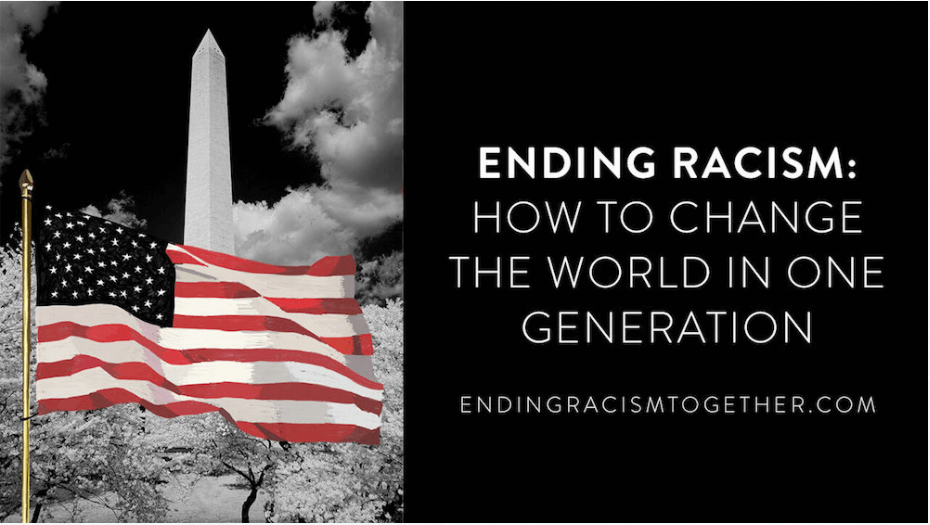
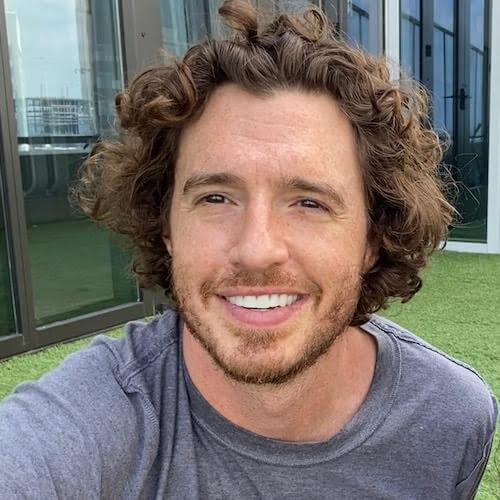
“Remembering to be as self compassionate as I can and praying to the divine that we're all a part of.”
–Aaron
“Prayer, reading, meditation, walking.”
–Karen
“Erratically — which is an ongoing stream of practice to find peace.”
–Charles
“Try on a daily basis to be kind to myself and to realize that making mistakes is a part of the human condition. Learning from our mistakes is a journey. But it starts with compassion and caring. First for oneself.”
–Steve
“Physically: aerobic exercise, volleyball, ice hockey, cycling, sailing. Emotionally: unfortunately I have to work to ‘not care’ about people or situations which may end painfully. Along the lines of ‘attachment is the source of suffering’, so best to avoid it or limit its scope. Sad though because it could also be the source of great joy. Is it worth the risk?“
–Rainer
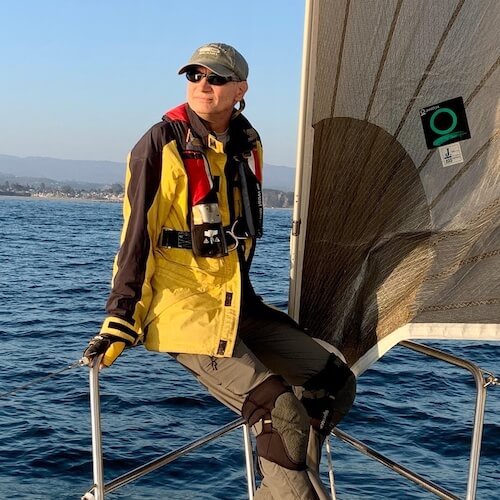

“It's time for my heart to be nurtured on one level yet contained on another. To go easy on me and to allow my feelings to be validated, not judged harshly. On the other hand, to let the heart rule with equanimity and not lead the mind and body around like a master.”
–Suzanne
“I spend time thinking of everything I am grateful for, and I try to develop my ability to express compassion for myself and others without reservation. I take time to do the things I need to do to keep myself healthy and happy. This includes taking experiential workshops, fostering relationships, and participating within groups which have a similar interest to become a more compassionate and fulfilled being.“
–Peter
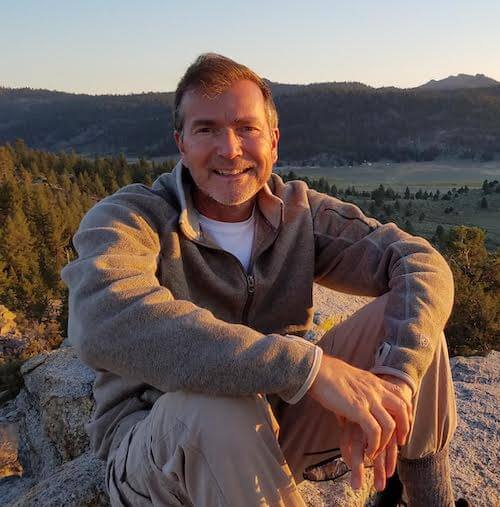
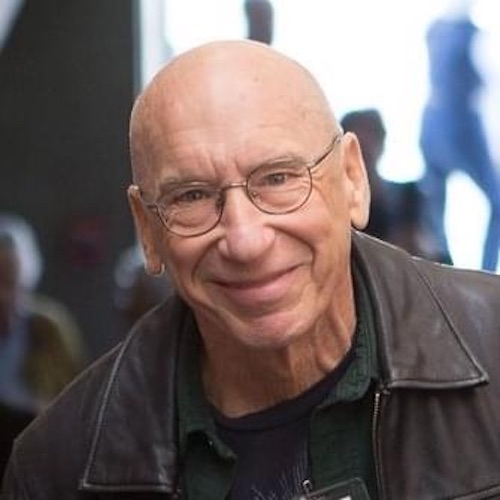
“Self-forgiveness for my own judgments. And oh yeah, coming to Esalen.”
–David B.
“Hmm, this is a tough one! I guess I take care of my heart through fostering relationships with people I feel connected to. Spending quality time with them (whether we're on the phone, through messages/letters, on Zoom, or in-person). Being there for them, listening to them, sharing what's going on with me, my struggles and my successes... like we do in the Esalen weekly Friends of Esalen Zoom sessions!”
–Lori

“I remind myself in many ways of the fact that " Love is all there is!" LOVE is the prize and this one precious life is the stage we get to learn our lessons. I get out into nature, hike, camp, river kayak, fly fish, garden, I create, I dance (not enough!), and I remain grateful for each day, each breath, each moment. Being in the moment, awake, and remembering the gift of life and my feeling of gratitude for all of creation.”
–Steven
“My physical heart by limiting stress and eating a heart-healthy diet. My emotional heart by staying in love with the world and by knowing that all disappointment and loss will pass.“
–David Z.
Today, September 29, is World Heart Day. Strike up a conversation with your own heart and as you feel comfortable, encourage others to do the same. As part of our own transformations and self-care, we sometimes ask for others to illuminate and enliven our hearts or speak our love language.
What if we could do this for ourselves too, even if just for today… or to start a heart practice, forever?
"Most of the work and research that I've read on anti-racism is built on one assumption: that it cannot end. My article aims to ask one question: WHY NOT? We are the vessel for the dreams our ancestors were unable to dream. And because of them, and the ground that has been prepared before us, it's time for us to dream bigger."
—Justin Michael Williams

“Almost every piece of work or literature that I've read on racism is built on one assumption: that it cannot end. Or at best, that it will be a ‘lifelong fight.’ That ending racism will be something that ‘will probably never happen in our generation.’”
These compelling insights by Esalen faculty Justin Michael Williams lure readers into his thought-provoking essay Ending Racism: How to Change the World in One Generation. In it Justin writes that if we continue to say, "racism is something that can never end in our generation ... then who the hell ever gets to take responsibility for ending it? Enter: us.”
Justin, who wrote the article when he was an artist-in-residence at Esalen in July, dives deep with Esalen News on the genesis of the project and why it was important to offer this timely call to action.
Esalen News: Let’s begin with one of the unique things that arose from your time as an artist-in-residence at Esalen in summer.
Justin Michael Williams: I came to Esalen with one creative intention: to see what emerged if I unplugged from the incessant shitstorm of the media. Before I got to Esalen, my nervous system was shot—seeing black man after black man being murdered by the police. After about a week away from all the stimuli, I felt something start to emerge—hope. Being on the Esalen grounds plugged me back into one big truth: our ancestors have been persevering for generations, and we can too.
What was one main thing you, in your heart, wanted to communicate with the article you wrote about racism?
Most of the work and research that I've read on anti-racism is built on one assumption: that it cannot end. My article aims to ask one question: WHY NOT? We are the vessel for the dreams our ancestors were unable to dream. And because of them, and the ground that has been prepared before us, it's time for us to dream bigger. It's time to create a vision where we aren't just talking "about" racism, but ending it.

Your article is a dynamic call to action. What do you hope people take away from it?
I hope people understand that there's a big difference between fighting against something and fighting for something. When people sign the Pledge to End Racism at the end of the article, it's a signal that we have opened our minds to a new possibility.
So often, we fall into resignation about race and racism, but resignation is the opposite of progress. And so regardless of who started it, regardless of who points the finger of blame, if we want to end racism we all have to step up to the plate and do our part.
How has the response been?
Most people have said they've never even considered the idea that racism could end. This article helped them shift the perspective to see that it can and will end once we as a community and society are ready for it to happen. It felt really important for me, especially on the anniversary of the March on Washington where Martin Luther King gave his historic I Have a Dream” speech, to remind people of the power of a big vision.
Were there any responses from the article that really stand out?
The most empowering thing for me is watching people who aren't "influencers" or "thought leaders" use their voices to share--even sharing with your family, or community makes a big impact. Each of us spreading the ripples of change into the corners of the world where only we can reach. We can't leave it up to the big names, it's going to be about each of us stepping into our power, and vulnerability talking about how we might make a difference.
Where do you feel we are at now, several months after many things have been brightly illuminated in the aftermath of George Floyd’s death?
I think people are really confused and scared. This is why I wanted to write this article. Because when we are confused and scared and resigned, progress is impossible. Like I said, our ancestors have paved the way for us to step up and do the work that only this generation can do. We are exactly who was meant to be alive at this time. We are enough. And the new dream starts now.
Read Justin's article here.
Learn more about Justin and his work here.


“Remembering to be as self compassionate as I can and praying to the divine that we're all a part of.”
–Aaron
“Prayer, reading, meditation, walking.”
–Karen
“Erratically — which is an ongoing stream of practice to find peace.”
–Charles
“Try on a daily basis to be kind to myself and to realize that making mistakes is a part of the human condition. Learning from our mistakes is a journey. But it starts with compassion and caring. First for oneself.”
–Steve
“Physically: aerobic exercise, volleyball, ice hockey, cycling, sailing. Emotionally: unfortunately I have to work to ‘not care’ about people or situations which may end painfully. Along the lines of ‘attachment is the source of suffering’, so best to avoid it or limit its scope. Sad though because it could also be the source of great joy. Is it worth the risk?“
–Rainer


“It's time for my heart to be nurtured on one level yet contained on another. To go easy on me and to allow my feelings to be validated, not judged harshly. On the other hand, to let the heart rule with equanimity and not lead the mind and body around like a master.”
–Suzanne
“I spend time thinking of everything I am grateful for, and I try to develop my ability to express compassion for myself and others without reservation. I take time to do the things I need to do to keep myself healthy and happy. This includes taking experiential workshops, fostering relationships, and participating within groups which have a similar interest to become a more compassionate and fulfilled being.“
–Peter


“Self-forgiveness for my own judgments. And oh yeah, coming to Esalen.”
–David B.
“Hmm, this is a tough one! I guess I take care of my heart through fostering relationships with people I feel connected to. Spending quality time with them (whether we're on the phone, through messages/letters, on Zoom, or in-person). Being there for them, listening to them, sharing what's going on with me, my struggles and my successes... like we do in the Esalen weekly Friends of Esalen Zoom sessions!”
–Lori

“I remind myself in many ways of the fact that " Love is all there is!" LOVE is the prize and this one precious life is the stage we get to learn our lessons. I get out into nature, hike, camp, river kayak, fly fish, garden, I create, I dance (not enough!), and I remain grateful for each day, each breath, each moment. Being in the moment, awake, and remembering the gift of life and my feeling of gratitude for all of creation.”
–Steven
“My physical heart by limiting stress and eating a heart-healthy diet. My emotional heart by staying in love with the world and by knowing that all disappointment and loss will pass.“
–David Z.
Today, September 29, is World Heart Day. Strike up a conversation with your own heart and as you feel comfortable, encourage others to do the same. As part of our own transformations and self-care, we sometimes ask for others to illuminate and enliven our hearts or speak our love language.
What if we could do this for ourselves too, even if just for today… or to start a heart practice, forever?
"Most of the work and research that I've read on anti-racism is built on one assumption: that it cannot end. My article aims to ask one question: WHY NOT? We are the vessel for the dreams our ancestors were unable to dream. And because of them, and the ground that has been prepared before us, it's time for us to dream bigger."
—Justin Michael Williams

“Almost every piece of work or literature that I've read on racism is built on one assumption: that it cannot end. Or at best, that it will be a ‘lifelong fight.’ That ending racism will be something that ‘will probably never happen in our generation.’”
These compelling insights by Esalen faculty Justin Michael Williams lure readers into his thought-provoking essay Ending Racism: How to Change the World in One Generation. In it Justin writes that if we continue to say, "racism is something that can never end in our generation ... then who the hell ever gets to take responsibility for ending it? Enter: us.”
Justin, who wrote the article when he was an artist-in-residence at Esalen in July, dives deep with Esalen News on the genesis of the project and why it was important to offer this timely call to action.
Esalen News: Let’s begin with one of the unique things that arose from your time as an artist-in-residence at Esalen in summer.
Justin Michael Williams: I came to Esalen with one creative intention: to see what emerged if I unplugged from the incessant shitstorm of the media. Before I got to Esalen, my nervous system was shot—seeing black man after black man being murdered by the police. After about a week away from all the stimuli, I felt something start to emerge—hope. Being on the Esalen grounds plugged me back into one big truth: our ancestors have been persevering for generations, and we can too.
What was one main thing you, in your heart, wanted to communicate with the article you wrote about racism?
Most of the work and research that I've read on anti-racism is built on one assumption: that it cannot end. My article aims to ask one question: WHY NOT? We are the vessel for the dreams our ancestors were unable to dream. And because of them, and the ground that has been prepared before us, it's time for us to dream bigger. It's time to create a vision where we aren't just talking "about" racism, but ending it.

Your article is a dynamic call to action. What do you hope people take away from it?
I hope people understand that there's a big difference between fighting against something and fighting for something. When people sign the Pledge to End Racism at the end of the article, it's a signal that we have opened our minds to a new possibility.
So often, we fall into resignation about race and racism, but resignation is the opposite of progress. And so regardless of who started it, regardless of who points the finger of blame, if we want to end racism we all have to step up to the plate and do our part.
How has the response been?
Most people have said they've never even considered the idea that racism could end. This article helped them shift the perspective to see that it can and will end once we as a community and society are ready for it to happen. It felt really important for me, especially on the anniversary of the March on Washington where Martin Luther King gave his historic I Have a Dream” speech, to remind people of the power of a big vision.
Were there any responses from the article that really stand out?
The most empowering thing for me is watching people who aren't "influencers" or "thought leaders" use their voices to share--even sharing with your family, or community makes a big impact. Each of us spreading the ripples of change into the corners of the world where only we can reach. We can't leave it up to the big names, it's going to be about each of us stepping into our power, and vulnerability talking about how we might make a difference.
Where do you feel we are at now, several months after many things have been brightly illuminated in the aftermath of George Floyd’s death?
I think people are really confused and scared. This is why I wanted to write this article. Because when we are confused and scared and resigned, progress is impossible. Like I said, our ancestors have paved the way for us to step up and do the work that only this generation can do. We are exactly who was meant to be alive at this time. We are enough. And the new dream starts now.
Read Justin's article here.
Learn more about Justin and his work here.


“Remembering to be as self compassionate as I can and praying to the divine that we're all a part of.”
–Aaron
“Prayer, reading, meditation, walking.”
–Karen
“Erratically — which is an ongoing stream of practice to find peace.”
–Charles
“Try on a daily basis to be kind to myself and to realize that making mistakes is a part of the human condition. Learning from our mistakes is a journey. But it starts with compassion and caring. First for oneself.”
–Steve
“Physically: aerobic exercise, volleyball, ice hockey, cycling, sailing. Emotionally: unfortunately I have to work to ‘not care’ about people or situations which may end painfully. Along the lines of ‘attachment is the source of suffering’, so best to avoid it or limit its scope. Sad though because it could also be the source of great joy. Is it worth the risk?“
–Rainer


“It's time for my heart to be nurtured on one level yet contained on another. To go easy on me and to allow my feelings to be validated, not judged harshly. On the other hand, to let the heart rule with equanimity and not lead the mind and body around like a master.”
–Suzanne
“I spend time thinking of everything I am grateful for, and I try to develop my ability to express compassion for myself and others without reservation. I take time to do the things I need to do to keep myself healthy and happy. This includes taking experiential workshops, fostering relationships, and participating within groups which have a similar interest to become a more compassionate and fulfilled being.“
–Peter


“Self-forgiveness for my own judgments. And oh yeah, coming to Esalen.”
–David B.
“Hmm, this is a tough one! I guess I take care of my heart through fostering relationships with people I feel connected to. Spending quality time with them (whether we're on the phone, through messages/letters, on Zoom, or in-person). Being there for them, listening to them, sharing what's going on with me, my struggles and my successes... like we do in the Esalen weekly Friends of Esalen Zoom sessions!”
–Lori

“I remind myself in many ways of the fact that " Love is all there is!" LOVE is the prize and this one precious life is the stage we get to learn our lessons. I get out into nature, hike, camp, river kayak, fly fish, garden, I create, I dance (not enough!), and I remain grateful for each day, each breath, each moment. Being in the moment, awake, and remembering the gift of life and my feeling of gratitude for all of creation.”
–Steven
“My physical heart by limiting stress and eating a heart-healthy diet. My emotional heart by staying in love with the world and by knowing that all disappointment and loss will pass.“
–David Z.
Today, September 29, is World Heart Day. Strike up a conversation with your own heart and as you feel comfortable, encourage others to do the same. As part of our own transformations and self-care, we sometimes ask for others to illuminate and enliven our hearts or speak our love language.
What if we could do this for ourselves too, even if just for today… or to start a heart practice, forever?